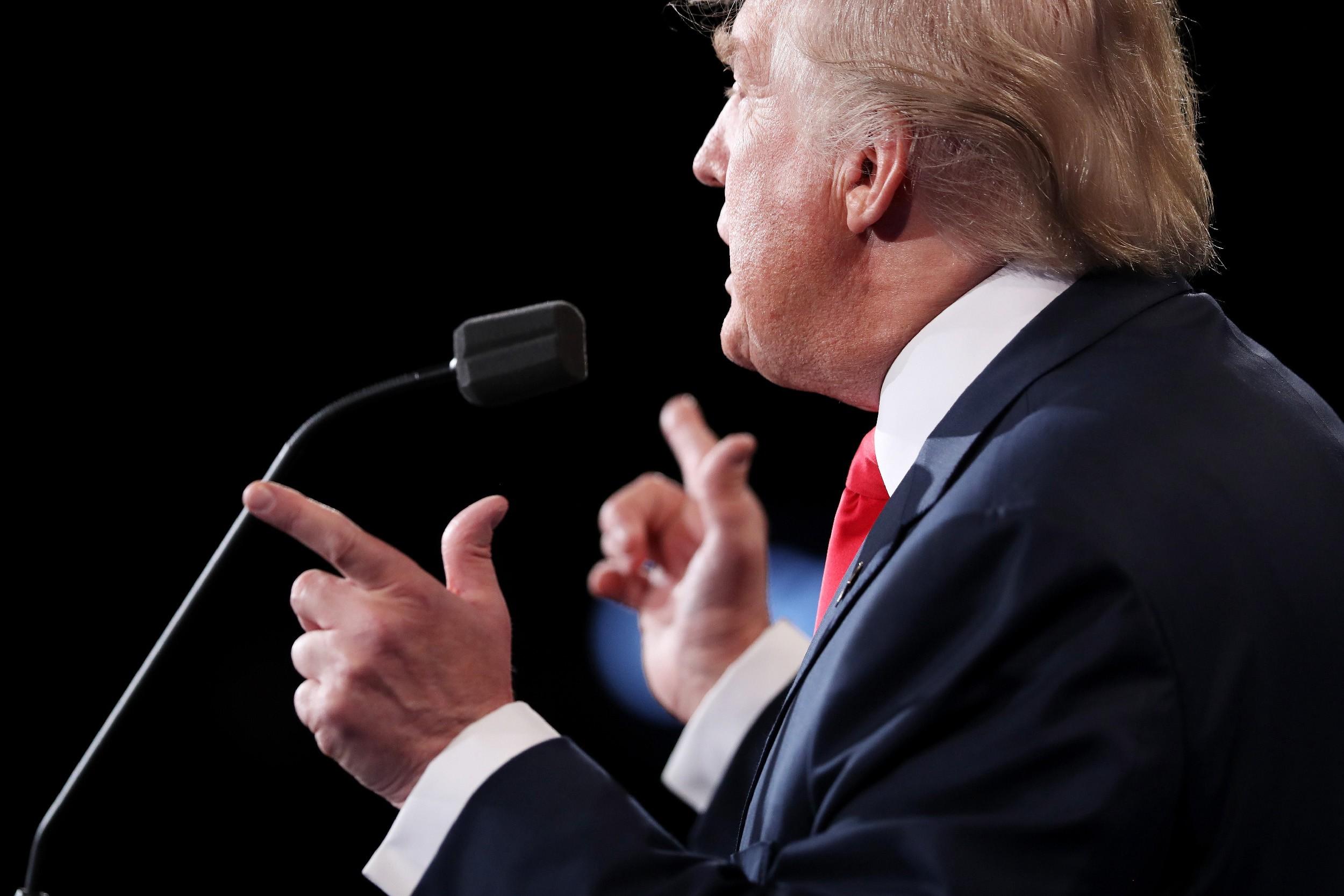“I’ll Keep You in Suspense” Was Donald Trump at His Most Horrifying
At the final debate, Trump’s refusal to affirm a potential Hillary Clinton victory summed up everything to fear about him
“I will look at it at the time.”
It was a routine enough debate for a while there, some of the most normal — which is to say boring — conflict we’ve seen in months. Heavy on issues — Supreme Court appointments, Second Amendment rights, Roe v. Wade — and light on pizzazz. It seemed as though we might, 20 days out from the election, finally have something approximating a normal political conversation. We couldn’t, of course. Suddenly we had something else, something bleaker than most everything that had come before it: the presidential candidate of a major party, leaning back in that bullfrog way of his and decreeing that he might not accept the result of next month’s democratically held election.
Donald Trump might not accept the result. Set aside for a moment his positions on guns and immigrants and whether he believes Japan should have nuclear weapons. His position on the American democracy is this: Maybe it doesn’t work. Probably it doesn’t work. When moderator Chris Wallace pushed him to clarify if he really meant that — “Sir, there is a tradition in this country, in fact one of the prides of this country is the peaceful transition of power …” — he continued: “I’ll keep you in suspense, OK?” Suspense. Like an episode of Lost.
Hillary Clinton called it horrifying. It is, in the realest sense: It inspires horror. And somehow, it is not exactly a surprise.
Days ago, his running mate, Governor Mike Pence of Indiana, said that the Trump campaign would “absolutely” accept the result of the election; he doubled down less than an hour before the debate, laughing as he insisted: “I’ve said before that we’ll certainly accept the outcome of this election.” Trump’s own daughter Ivanka suggested the same.
But not Trump. He’s operating, as he has all along, in pursuit of his own goals, having guaranteed that the Trump show won’t end when the Electoral College is decided; by definition, now, it can’t. Even if he deigns to accept the loss that nearly every poll in the country says is coming his way, the spotlight will be on him that much longer. He will have that much more time to unfurl his plans, to wipe an extra smile or two off his opponent’s face, to erect the tentpoles under what is looking ever more like a Trump television network.
Let’s take him at his word for a moment and consider: What would Trump’s refusal to accept the result actually mean? Let’s say that on November 8, he comes up short; let’s imagine him behind a lectern shouting that his loss was the product of fraud and lies and pan-government collusion. What happens next? That peaceful transition of power, the one he questioned Wednesday night in Las Vegas — the alternative is a transition of power that is not peaceful.
What do his followers do when they’re told that they’re the victims of crime on a national scale? Perhaps they begin to prepare for 2018 and 2020. Perhaps they subscribe to his YouTube channel. Or perhaps they do something else, something more forceful. It is difficult to imagine refusal to accept the democratic system being followed by mere hopes for a better outcome next time, to believe that the damage here can be contained. It is difficult to imagine Trump, the man who whined mid-debate of not getting more Emmys, realizing the magnitude of this.
And it is especially difficult to imagine him caring at all.

